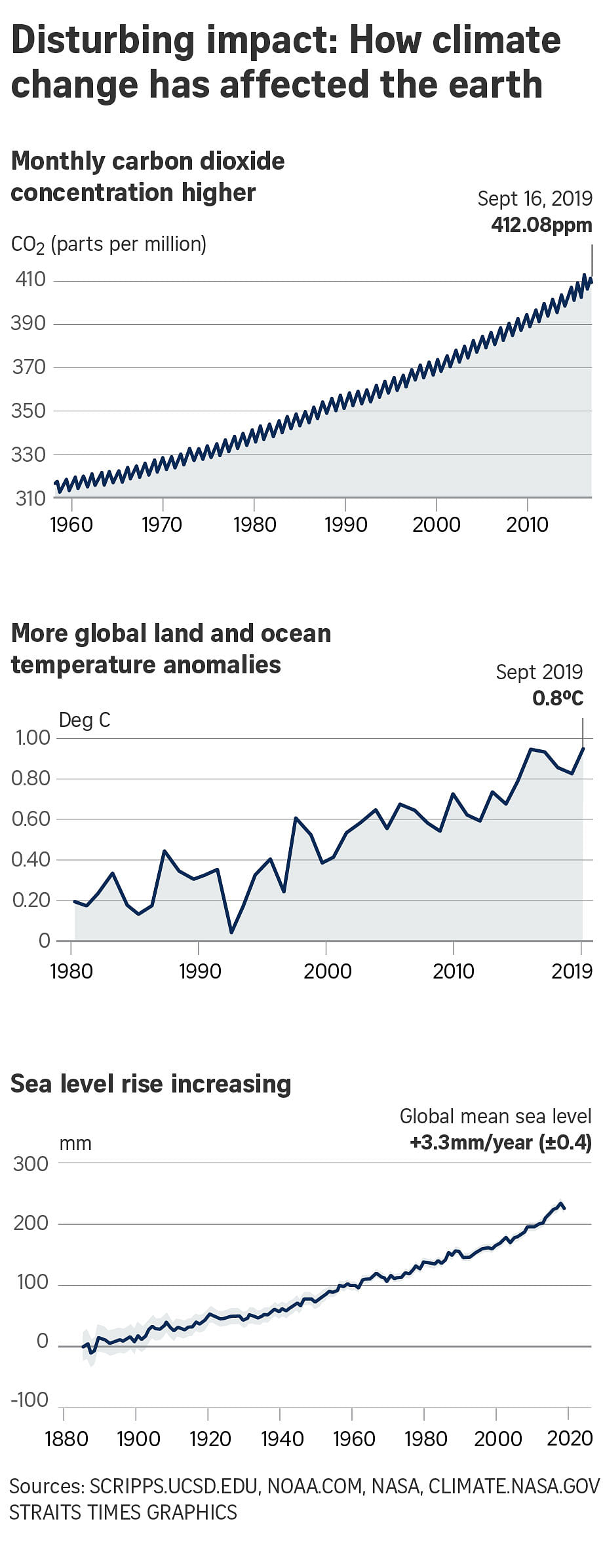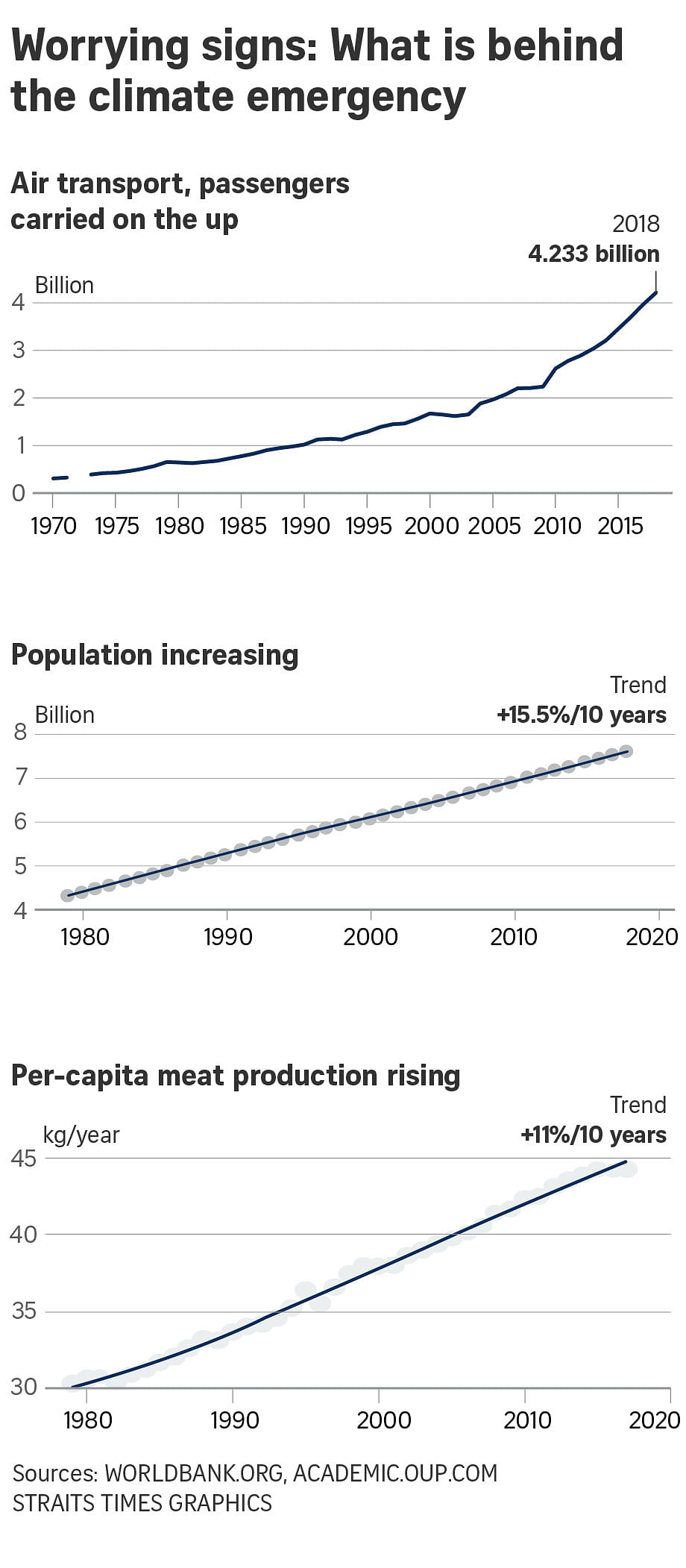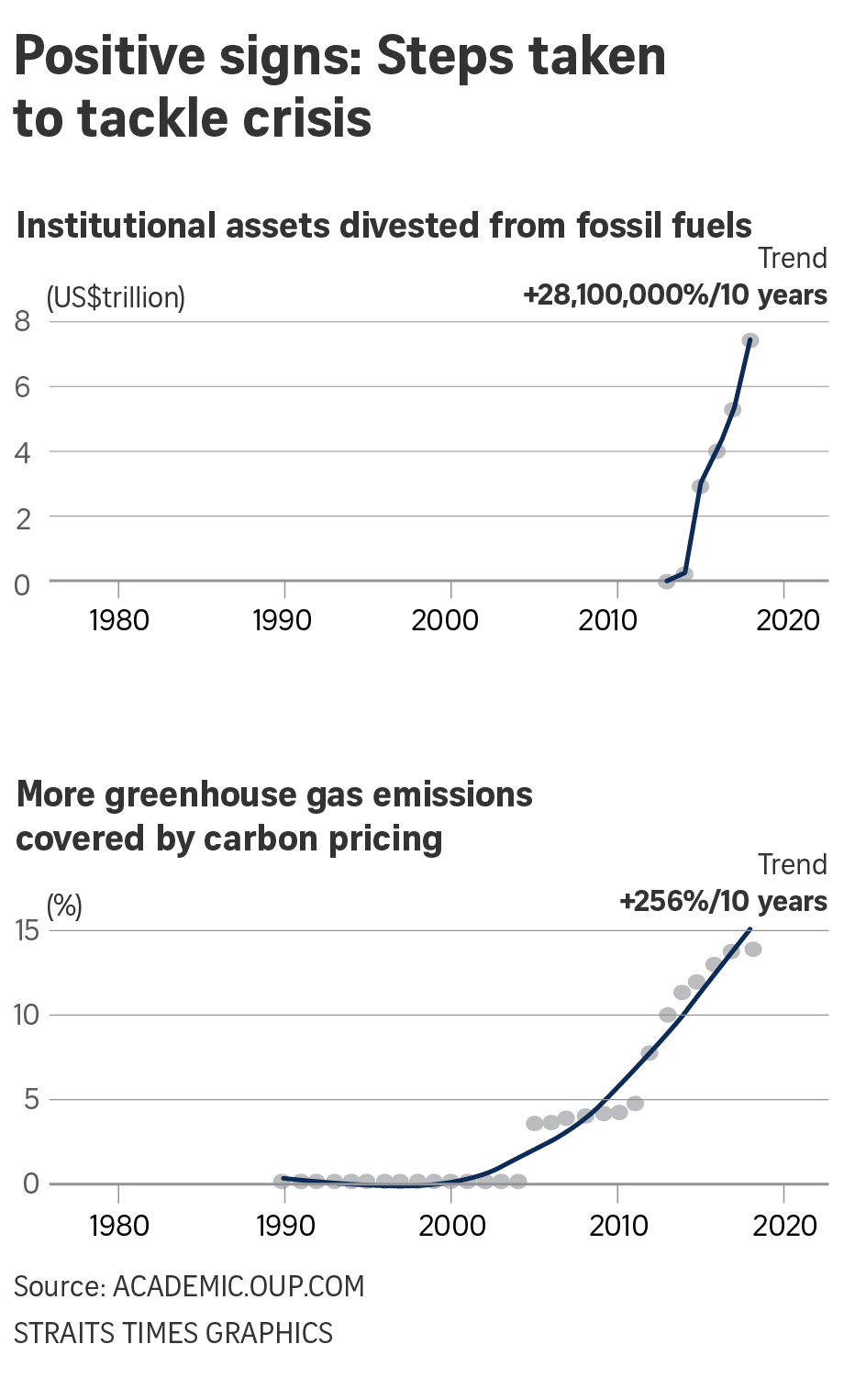WASHINGTON • A new study by 11,258 scientists in 153 countries from a broad range of disciplines warns that the planet "clearly and unequivocally faces a climate emergency", and provides six broad policy goals that must be met to address it.
The study, published on Tuesday in the journal Bioscience, was spearheaded by ecologists Bill Ripple and Christopher Wolf of Oregon State University, along with Tufts University climate scientist William Moomaw, and researchers in Australia and South Africa.
The report is a stark departure from recent scientific assessments of global warming, such as those of the UN Intergovernmental Panel on Climate Change, in that it does not couch its conclusions in the wishy-washy language of uncertainties, and it does prescribe policies.
The study, called the "World scientists' warning of a climate emergency", marks the first time a large group of scientists has formally come out in favour of labelling climate change an "emergency", which the study notes is caused by many human trends that are together increasing greenhouse gas emissions.
The paper clearly lays out the huge challenge of reducing emissions of greenhouse gases.
"Despite 40 years of global climate negotiations, with few exceptions, we have generally conducted business as usual and have largely failed to address this predicament," the study states.
The paper bases its conclusions on a set of indicators that show the human influence on climate, such as 40 years of greenhouse gas emissions, economic trends, population growth rates, per capita meat production and global tree cover loss, as well as global temperature trends and ocean heat content.
The study also departs from other major climate assessments in that it directly addresses population growth. The study notes that the global decline in fertility rates has "substantially slowed" during the past 20 years, and calls for "bold and drastic" changes in economic growth and population policies to cut greenhouse gas emissions. Such measures would include policies that strengthen human rights.
On energy, the study calls for the world to "implement massive energy efficiency and conservation practices" and cut out fossil fuels in favour of renewable sources of energy. It also calls for remaining fossil fuels to remain in the ground, a key goal for many climate activists.
Ms Maria Abate, a signatory of the scientists' warning and an assistant professor of biology at Simmons University in Boston, said: "The reported vital signs of our global activity and climate responses give us a tangible, evidence-based report card that I hope will help our culture to develop a broader awareness more quickly to slow this climate crisis."
Other items on the study's list of policy priorities include quickly cutting emissions of short-lived climate pollutants, such as soot and methane, which could slow short-term warming. The study also calls for a shift to eating mostly plant-based foods and instituting agricultural practices that increase the amount of carbon the soil absorbs.
On the economy, the study states that improving long-term sustainability and reducing inequality should be prioritised over growing wealth, as measured using gross domestic product. The authors also advocate for policies that would curtail biodiversity loss and the destruction of forests, and they recommend prioritising the preservation of intact forests that store carbon along with other lands that can rapidly bury carbon, thereby reducing global warming.
The term "climate emergency" has been championed by climate activists and pro-climate action politicians seeking to add a sense of urgency to the way we respond to what is a long-term problem.
To date, scientists have been reluctant to use such language. However, this study may change that.



WASHINGTON POST

